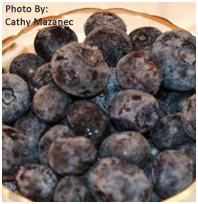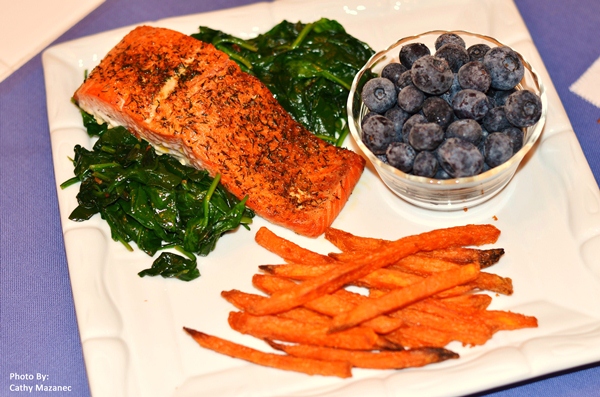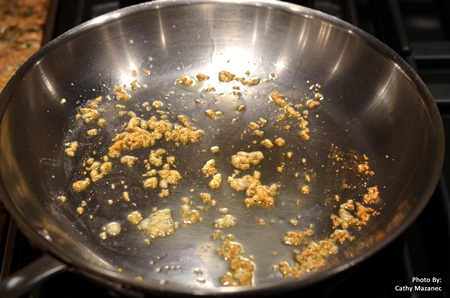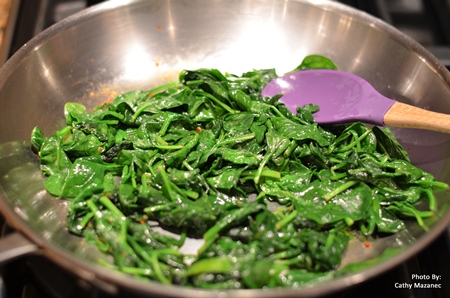February is Heart Month
First the bad news, heart disease is the number one killer of both men and women. Now the good news, heart disease is preventable and controllable. Chews Strategically will focus on the health of your heart for the month of February so tune in and learn how to insure heart disease is something you don’t have to fear.
5 Powerful Foods for Your Heart
1. Wild Alaskan Salmon
Wild Alaskan salmon and other low toxin, fatty fish like sardines (tuna is high in mercury so eat it sparingly), contain the omega-3 fatty acids, EPA and DHA, that provide protection against heart disease. EPA and DHA have been shown to prevent platelet aggregation in the arteries helping to prevent clots and plaque formation. Omega-3 fats have also been shown to reduce inflammation in the body which promotes healthy blood vessels and good circulation. Emerging research is showing Omega-3’s reduce the risk for heart arrhythmias. And, research has repeatedly shown that high levels of omega 3 fats lower blood triglyceride levels. Make it a point to eat 2 or more servings of low toxin, fatty fish each week.
To find out more about Omega-3 fats, click here.
2. Spinach
Spinach and other leafy greens like Swiss chard, beet greens and turnip greens, provide folate and other B vitamins, potassium and fiber, all of which promote heart health and healthy blood pressure. Whenever possible, buy organic greens.
 3. Blueberries
3. Blueberries
Blueberries and other deep colored berries like blackberries, raspberries, strawberries and cranberries contain phytonutrients like anthocyanins, anthocyanidins and ellagic acid which relax blood vessels helping to lower blood pressure. When available, buy organic berries.
4. Legumes: beans, peas and lentils
Beans are an excellent source of soluble fiber. Soluble fiber dissolves into a gel-like substance that sticks to cholesterol and fats in the intestines preventing them from being absorbed into the body. Then it escorts them out of the body in waste which contributes to lowering LDL-cholesterol in your blood. According to the National Institute of Health, eating 5-10 grams of soluble fiber each day can cause a 5% reduction in your LDL cholesterol. Beans are also a good source of potassium which helps lower blood pressure.
To learn about other sources of Soluble Fiber, click here.

For great time saving bean recipes, check out the October 10, 2012, Chews Strategically post "Don’t Spill the Beans" by clicking here.
5. Beets
Long ignored, beets are now being recognized as a Super Food. One attribute of beets, the dark red pigment, offers phytonutrients that help reduce inflammation in the body to help insure healthy blood vessels and arteries. In addition, beets provide folate and magnesium as well as several powerful antioxidants including Vitamin C. The potassium in beets helps lower blood pressure.
Sources:
- NIH, National Heart, Lung and Blood Institute
- American Heart Association
- Centers for Disease Control and Prevention
Having trouble getting heart healthy foods in your diet?
Try this 20 minute meal that will provide a nutritional boost for your family.
20 Minute Heart Smart Dinner
Click here for a printable menu and recipes.
Menu
Oven Roasted Orange Dill Salmon
Sautéed Spinach
Baked sweet potato fries (Alexia® is a good store-bought option, or make your own!)
Frozen blueberries
Sautéed Spinach
(in 4 minutes)
Ingredients
12-16 ounce fresh organic baby spinach
1½ Tbsp. extra virgin olive oil
1-2 cloves fresh garlic, pressed (depending on how garlicy you like it)
Sea salt, to taste
Black pepper, to taste
Directions
- In large skillet, heat olive oil on Medium High heat.
- Add garlic. Stir while garlic browns for about 30 seconds to 1 minute.
- Add all of the spinach to the pan allowing it to sit for 30 seconds to 1 minute until it begins to wilt on the bottom.
- Carefully turn spinach, bringing the spinach on the bottom up to the top.
- Allow spinach to continue to wilt, stirring occasionally, for 2-3 minutes. Cook 1-2 minutes more until desired doneness is achieved.
- Add salt and pepper to taste.
- Plate the spinach and top with roasted salmon fillet. Add a serving of baked sweet potato fries and a small bowl of blueberries to complete this heart protecting meal.
In case you missed it, check out fellow SAS employees performing "Make the Call - Don’t Miss A Beat" to learn the warning signs of a heart attack in women. To watch the video, click here.





1 Comment
Pingback: Stress and Your Heart: What Can You Do - SAS Life